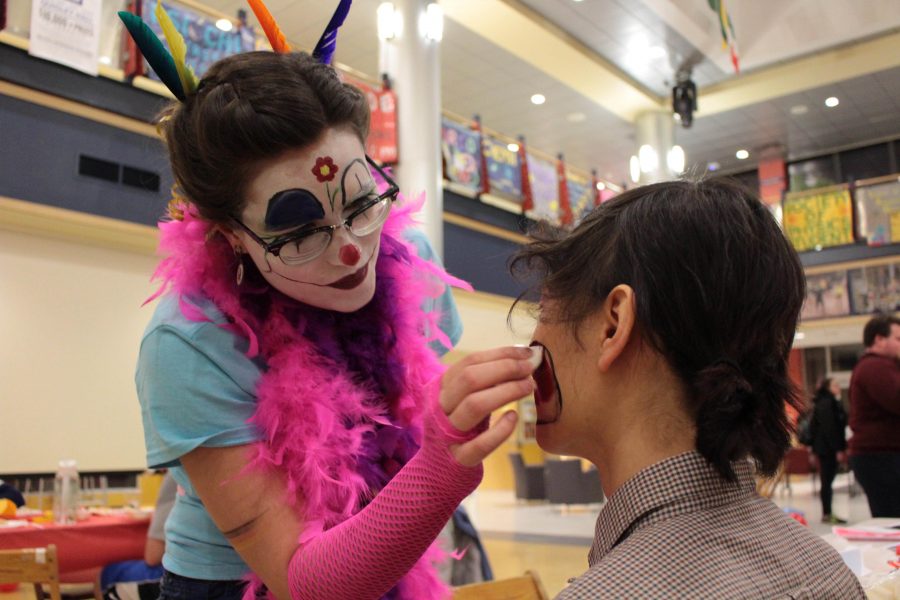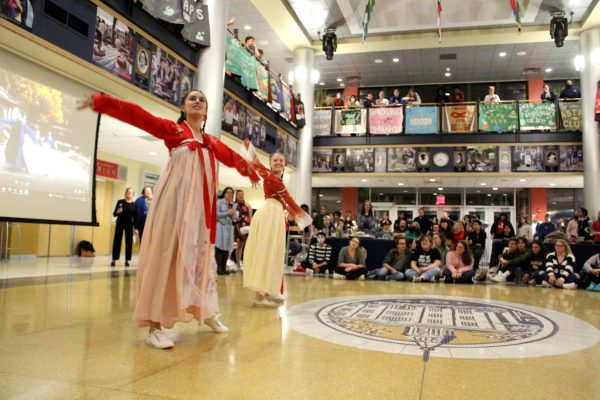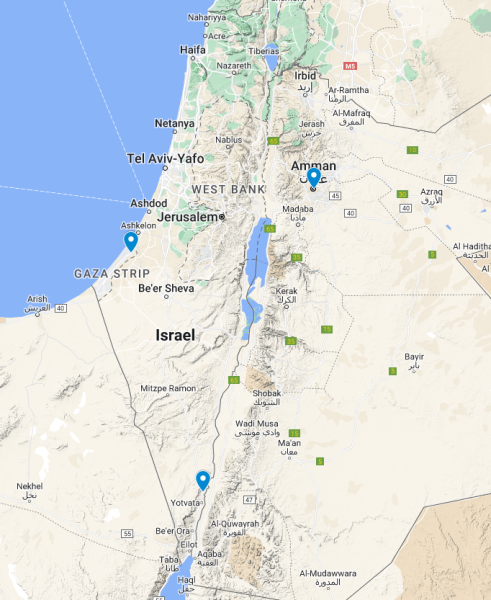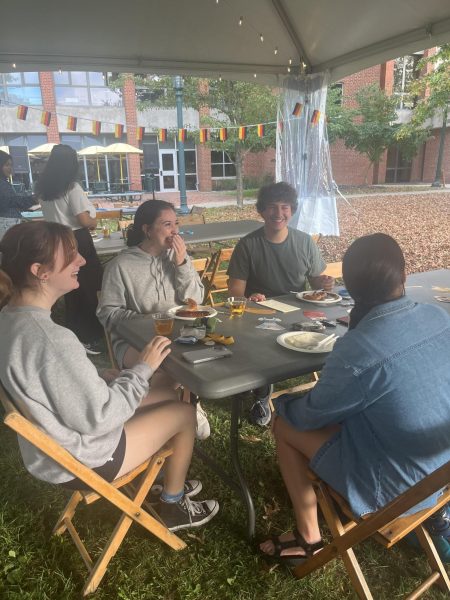International houses celebrate the Carnival of Cultures
Jasmin Wagner, a German teaching assistant paints the faces of people who came to the Carnival of Culture on Sunday, Feb. 26, 2017.
The German, French and Spanish International Houses collaborated to host the Carnival of Cultures in the campus center lobby on Feb. 26. Jasmin Wagner, the German teaching assistant, and Amandine Brizard, the french teaching assistant hosted the event.
Wagner and Brizard said that the celebration of Carnival originated from a Catholic tradition in which the church tolerated people consuming all the meats and fats so they could rid the city of them before the start of lent. Now Carnival is celebrated in several countries throughout Europe. Each country has their own twist on Carnival, and Brizard and Wagner said they wanted to showcase this variance in their event.
Food was the star of the event. Students in attendance were able to indulge in food offered by various houses. The French House baked a special donut called bottereau, which is only eaten during the Carnival season. Additionally, the German House cooked a dish called Currywurst und Pommes, which is sausage on fries, and the Spanish House made a seafood salad called Russian salad.
Tamara De la Via Carrasco, the spanish teaching assistant, said that cooking the Spanish dish was what she enjoyed most in preparing for the celebration.
“I think that my favorite memory is when I asked people if they liked what I cooked, because I’m not a really good cook. They said, ‘Yes, this is delicious,’” De la Via Carrasco said.
In addition to all the food, there was dancing and activities for those in attendance. De la Via Carrasco said that if she had to describe the atmosphere of the event, it would be joyful.
“It was a very cheerful atmosphere. People were dancing and were really interested in the presentation given by two students [from Germany]. I asked people if they liked the event and if they liked the food, and they seemed really happy,” De la Via Carrasco said.
People were invited to have their faces painted, play a dating game and join in a competition where they would either be crowned a princess/prince, a virgin or a farmer.
“We had a contest because in Carnival in Germany, they choose a princess, a virgin and a farmer to represent the head of the city, or the royalty of the city, and they rule over the fools because everyone goes crazy on this day,” Wagner said.
Wagner and Brizard said they were surprised that the competition gained so much popularity during the event.
“For the contest that we made, the people either had to make a speech, sing a song or say a tongue twister to become the virgin, the farmer or the prince. They were really involved in that. One actually rapped, and that was really funny. Others sang and did the tongue twisters. It was a real competition,” Wagner said.
Both Wagner and Brizard appreciated the fact that so many people were able to join them in their celebration. They also both touched on the importance of having this event. Brizard said that while this event was meant to be fun, it was also designed to inform people on campus about what Carnival is and how it is celebrated in different countries.
Hayley Eckhardt, a resident of the German House helped in the planning of Carnival, said that she believed the new collaboration with the Spanish and French House was beneficial to educating the campus on how different countries in Europe celebrate Carnival.
“It brings awareness. … We have done Carnival in the past, because I lived in the German House last year as well and it was just Germany, but now we incorporated the French and Spanish tradition, so it kind of shows a little difference, especially the food. … It’s just showing the crazy things we do for holidays around the world differently,” Eckhardt said.
De la Via Carrasco also said this celebration helped demonstrate that the world celebrates different holidays, sometimes with similar origins.
“I think that it’s important for people to know that we have very similar traditions, but they differ in some things. We are the same and different at the same time,” De La Via Carrasco said.
This collaboration may have been a new experience, but it was an easy transition, according to Wagner and Brizard. Both said that they credit this smooth transition to the fact that it was simple to work with their peers.
“We are really good friends so it was easy, and our housemates helped too. … It was easy because we know each other, and we are always together,” Brizard said.
The collaboration also garnered a bigger crowd for the event than in previous years. The crowd was more diverse as well, as many of Brizard, Wagner and De la Via Carrasco’s students attended the event. Wagner said that one of the professors she assists said the event was more successful this year because people from each language department were able to converse with each other and learn about different cultures.
“It was a really nice exchange,” Brizard said.







